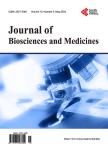Bioinformatic Analysis of SARS-CoV-2 Genomes to Develop a Universal Coronavirus Vaccine
Bioinformatic Analysis of SARS-CoV-2 Genomes to Develop a Universal Coronavirus Vaccine作者机构:Tesla STEM High School Redmond USA McSwiggen Biotech Consulting LLC Arvada USA
出 版 物:《Journal of Biosciences and Medicines》 (生物科学与医学(英文))
年 卷 期:2022年第10卷第10期
页 面:84-97页
学科分类:1007[医学-药学(可授医学、理学学位)] 100705[医学-微生物与生化药学] 1001[医学-基础医学(可授医学、理学学位)] 100103[医学-病原生物学] 10[医学]
主 题:Coronavirus S-Protein Spike Protein Conservation Universal Vaccine Bioinformatics
摘 要:COVID-19 is caused by the SARS-CoV-2 virus. Current RNA vaccines Pfizer/BioNTech’s BNT162b2 and Moderna’s mRNA-1273 are more than 94% successful in preventing infection. The spike protein of the virus is essential for the interaction and internalization of the virus in the host cell and is considered a prime target for vaccine development against the SARS virus. This study aims to identify highly conserved sequences in spike protein or other sections of the viral genome that can potentially be used to develop a universal coronavirus vaccine. Bioinformatic analysis of 258,269 full-length SARS-CoV-2 genomic sequences in the NCBI database was carried out using a custom Perl Script. All sequences were compared to the spike protein and full-length viral genome reference to find 100 nucleotide-long segments that were at least 99% conserved across SARS-CoV-2 sequences. The analysis resulted in a 99.5% conserved 114-nucleotide segment on the spike protein and a 99.49% conserved 104-nucleotide segment on the non-spike protein section of the viral genome. The conserved sequences from this study may be useful in developing an RNA or protein vaccine that may be effective against future SARS-CoV-2 strains or could act as a universal vaccine if these sequences are present in other coronavirus families.



